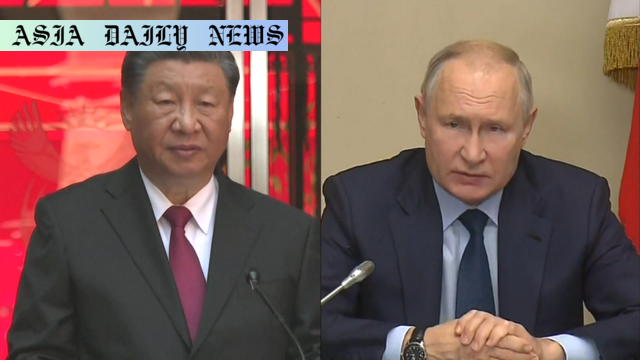Online talks highlight Sino-Russian cooperation amidst global uncertainties.
Chinese President Xi Jinping and Russian President Vladimir Putin held online talks to strengthen bilateral relations.
Both leaders expressed interest in enhancing cooperation to address global challenges and promote development.
Putin invited Xi to Moscow for Victory Day celebrations in May, while Xi invited Putin to an event in Beijing in September.
Discussions emphasized the stabilizing role of Sino-Russian relations in global politics.

Introduction: Strengthening Sino-Russian Cooperation
Chinese President Xi Jinping and Russian President Vladimir Putin engaged in an online meeting aimed at reinforcing their countries’ strategic partnership amidst a dynamic global landscape. Both leaders emphasized their commitment to enhancing collaboration to address external uncertainties, boost mutual prosperity, and uphold principles of international fairness and justice.
Key Highlights of the Meeting
China’s foreign ministry reported that President Xi expressed his readiness to guide China-Russia relations to unprecedented heights this year. This initiative is focused on countering external challenges, promoting development, and advocating for a fair global order.
President Putin highlighted how Sino-Russian relations have become a stabilizing force in global affairs. By emphasizing their alignment on foreign policy, both countries aim to exert significant influence on international dynamics.
Symbolic Invitations Reflecting Historical Bonds
The meeting also had a strong historical undercurrent, with leaders extending invitations to symbolic events in their respective countries. President Putin invited Xi to the Victory Day celebrations in Moscow this May, marking the Soviet Union’s victory over Nazi Germany. Meanwhile, Xi invited Putin to a ceremony in Beijing in September to commemorate China’s victory in the War of Resistance Against Japanese Aggression.
Geopolitical Implications
The alliance underscores a clear signal directed at the West, particularly the United States. With the administration of U.S. President Donald Trump taking office, the strengthened partnership between China and Russia could play a pivotal counterbalancing role in the international arena. This cooperative dynamic may challenge Western policies and reshape global power structures.
Future Prospects
The ongoing collaboration between China and Russia reflects deepening ties between two nations committed to challenging unilateralism and fostering a multilateral world order. By leveraging their economic and political influence, both countries are positioning themselves as indispensable players in shaping the future of global relations.
Conclusion: A Partnership for Stability
The Xi-Putin dialogue is emblematic of the evolving global order, where alliances outside traditional Western influence continue to gain traction. Their shared vision of prosperity and fairness signals a robust partnership that aims to mitigate uncertainties while striving for a more balanced geopolitical framework.



Commentary
Unity Amidst a Changing Global Landscape
The meeting between Xi Jinping and Vladimir Putin is a testament to the strong bonds between China and Russia, which continue to grow stronger amidst a volatile global environment. Their efforts to align strategies and foster mutual growth illustrate the importance of forging alliances in the face of uncertainty.
Historical Ties and Diplomatic Strategy
Both leaders’ invitations to significant historical commemorations highlight the deep-rooted connection between their nations. These events serve as reminders of the struggles both countries have faced in the past, while also reinforcing a shared vision to continue their collaboration into the future.
Challenging Western Influence
The clear message of unity from this meeting is a counterbalance to the dominant narrative of Western powers. As the world watches U.S. foreign policy shifts under a new administration, the Sino-Russian partnership serves as a stabilizing force in international affairs, one that is increasingly shaping global discourse.